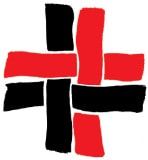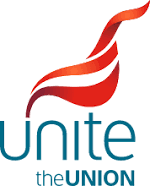I had barely written the first sentence when the breaking news banner on my screen brought the news of the Boylston bombings. With millions of others, I watched the news feed on BBC24 with horror and helplessness, appalled by the event itself, humbled by the bravery and kindness of strangers.
I have, in the past, stood in that place, at that time, on that day, to watch the runners complete the marathon, an event which helps to define Boston and Bostonians in particular and, because it is held on the anniversary of the first battles of the Revolutionary War, the US as a whole.
The bombing was an attack on the very best traditions of America, the founding traditions. And it was a terrorist attack. Whatever we subsequently learn about the motives of the brothers involved, it is their actions which are terrorist in the true sense: the use of violence to achieve a political end.
I have long debated this policy, with friends, comrades and myself. I have studied Robespierre and Danton, the architects of the Reign of Terror in 1793. I have read a great many self-exculpatory essays and memoirs. I am working on a fiction which addresses the actions of the Weather Underground in the US and the Baader-Meinhof Group in Germany. It becomes increasingly relevant each day.
Robespierre said: “If the basis of popular government in peacetime is virtue, the basis of popular government in a revolution is both virtue and terror: virtue, without which terror is baneful; terror, without which virtue is powerless.”
Mark Rudd said: “We have to be like Captain Ahab. We have to become monomaniacal and take the harpoon of righteousness and kill the white whale of imperialism.”
These statements are separated by nearly two centuries. One is from the state, the other against the state. But they have a great deal in common.
Both start from the premise that the speaker is right. Absolutely. 100%. No doubts. And certainly not self-doubt.
And from that position, the logic and the progression is inexorable. And so is the high and the self-justification. Andreas Baader spoke of “the wild glory of terror”, and Ulrike Meinhof said: “If one sets one car on fire, that is a criminal offence. If one sets hundreds of cars on fire, that is political action.”
I am aware that there are differences of degree involved here: that the Boylston bombings (and 9/11 and Oklahoma amongst others) were aimed indiscriminately at people, whereas Weathermen and the Red Army Faction made (most of the time) institutions their targets.
But I am not convinced that there is a significant distinction between any individual, group or government which adopts violence for political ends, or those who fill their rhetoric with images of death.
And I would remind them all of a conclusion of Bill Ayers, with whose objectives I agreed once, but who wrote in his memoir Fugitive Days:
“We had devolved from freedom fighters into criminals, from political radicals to minor technicians of illicit crafts ...”
Today's listening: Bizarrely, you might think and might be right, the Steve Miller Band. But early stuff - Sailor and Brave New World.






 RSS Feed
RSS Feed